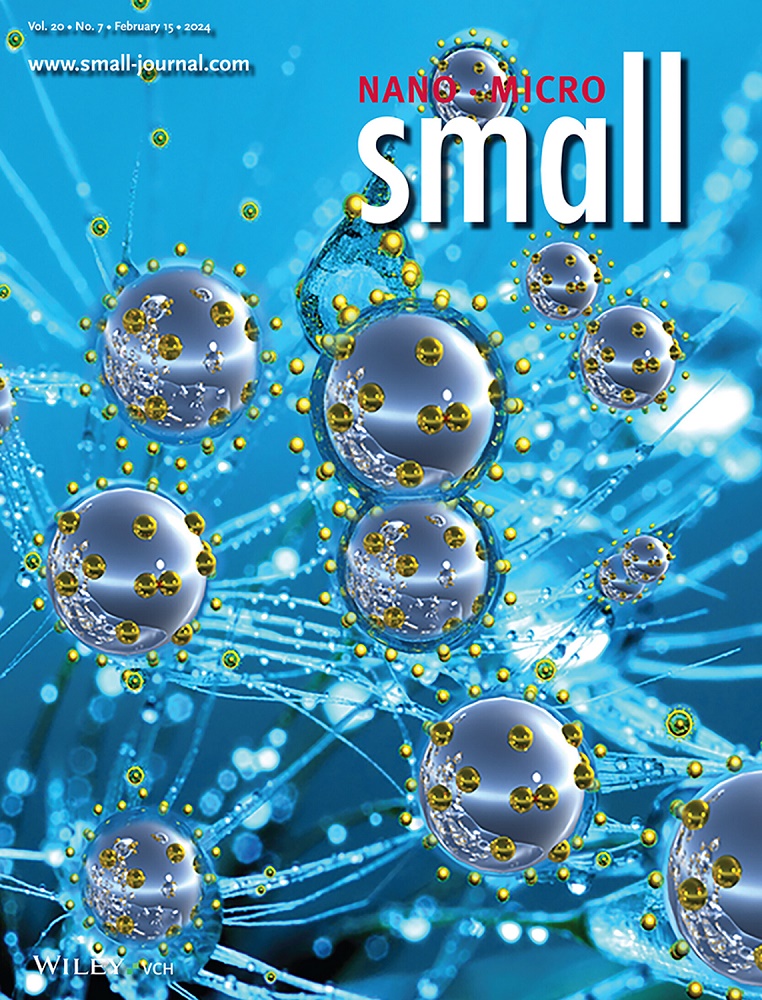Stabilized Co Single-Atom Catalyst via Ion Implantation for Efficient Hydrogen Production.
IF 13
2区 材料科学
Q1 CHEMISTRY, MULTIDISCIPLINARY
引用次数: 0
Abstract
Although single-atom catalysts (SACs) are garnering significant attention due to their exceptional catalytic properties, the synthesis of SACs remains challenging due to their thermodynamic instability. Herein, stabilized Co-based SACs enabled by the ion implantation technique are presented. It is revealed that implantation of Co ions with an accelerating energy of 120 keV and a controlled fluence not only leads to the formation of stabilized Co single atoms without notable aggregation of Co atoms into nanoclusters, but also induces the creation of defects in the NiO support, such as oxygen vacancies. With the effect of atomically dispersed Co metals over the defective NiO support, the Co single atom-supported NiO catalyst exhibits excellent electrocatalytic performance for hydrogen evolution reaction, showing significantly improved activity as well as stability with negligible catalytic degradation during long-term operation. Cu, Ni, and Fe-based SACs are further successfully synthesized, demonstrating that the ion implantation technique is a universal strategy for the synthesis of SACs with a wide variety of combinations of available metal atoms and supporting materials. This finding can pave the way for the development of stabilized SACs toward efficient and practical sustainable energy conversion systems that are based on various catalytic reactions.离子注入稳定Co单原子催化剂用于高效制氢。
尽管单原子催化剂(SACs)因其独特的催化性能而备受关注,但由于其热力学不稳定性,SACs的合成仍然具有挑战性。本文介绍了通过离子注入技术实现的稳定的co基SACs。结果表明,以120 keV的加速能量注入Co离子,在可控的影响下,不仅可以形成稳定的Co单原子,而不会形成明显的Co原子聚集成纳米簇,而且还会在NiO载体中产生氧空位等缺陷。在原子分散的Co金属对缺陷NiO载体的作用下,Co单原子负载NiO催化剂在析氢反应中表现出优异的电催化性能,在长期运行过程中表现出显著提高的活性和稳定性,催化降解可以忽略不计。进一步成功合成了Cu, Ni和fe基sac,表明离子注入技术是合成具有各种可用金属原子和支撑材料组合的sac的通用策略。这一发现可以为稳定的sac朝着基于各种催化反应的高效实用可持续能源转换系统的发展铺平道路。
本文章由计算机程序翻译,如有差异,请以英文原文为准。
求助全文
约1分钟内获得全文
求助全文
来源期刊

Small
工程技术-材料科学:综合
CiteScore
17.70
自引率
3.80%
发文量
1830
审稿时长
2.1 months
期刊介绍:
Small serves as an exceptional platform for both experimental and theoretical studies in fundamental and applied interdisciplinary research at the nano- and microscale. The journal offers a compelling mix of peer-reviewed Research Articles, Reviews, Perspectives, and Comments.
With a remarkable 2022 Journal Impact Factor of 13.3 (Journal Citation Reports from Clarivate Analytics, 2023), Small remains among the top multidisciplinary journals, covering a wide range of topics at the interface of materials science, chemistry, physics, engineering, medicine, and biology.
Small's readership includes biochemists, biologists, biomedical scientists, chemists, engineers, information technologists, materials scientists, physicists, and theoreticians alike.
 求助内容:
求助内容: 应助结果提醒方式:
应助结果提醒方式:


